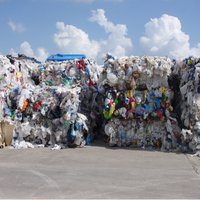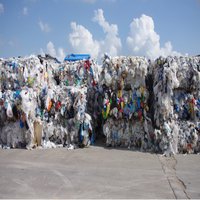Preventing Plastic Waste
New waste report lists measures to avoid plastic waste

New waste report lists measures to avoid plastic waste

Compared with 2007, the average plastic packaging waste generation per capita in the European Union (EU) in 2016 increased by more than six per cent. Important drivers of packaging waste have been an increasing share of convenience food and food to go, smaller production units in the food sector and the booming and especially waste intensive online shopping sector. Therefore, the EU and its member states have started to develop stricter and more binding waste prevention strategies, reflected inter alia in an increasing share of regulatory and market-based instruments.
Based on an analysis of ongoing waste prevention programmes in 27 EU countries plus Iceland, Norway, Switzerland and Turkey, comprising 37 national and regional waste prevention programmes by the end of 2018, the authors identified 173 measures to prevent plastic waste that are either implemented or planned to be implemented. The authors of the report are Dr. Henning Wilts, Director of the Circular Economy Division at the Wuppertal Institute, and Ioannis Bakas from the European Environment Agency (EEA), Dirk Nelen, Kévin Le Blevennec (VITO), Ulrike Meinel, Bettina Bahn-Walkowiak (Divison Circular Economy at the Wuppertal Institute), Mona Arnold (VTT) (all European Topic Centre on Waste and Materials in a Green Economy, ETC/WMGE for short), Lars Fogh Mortensen, Almut Reichel, Daniel Montalvo (EEA). The report of the EEA and the ETC/WMGE has been compiled in cooperation with the European Environment Information and Observation Networt (Eionet) countries.
The successful example of quantified reduction targets for plastic bags and single-use plastics and the wide range of innovative approaches to achieve these targets can be an inspiration for future activities. However, the analysis of the activities also shows that for most product groups there is a lack of clear and common targets and that the level of activity and ambitions vary significantly between countries. In addition, given the wide range of applications of plastics and their specific functionality, prevention policies must carefully consider unintended side effects and trade-offs.
In upcoming (then biennially) waste prevention reports, the EEA will not only report on implemented measures but also assess the evolution as regards the waste prevention for each Member State and for the Union as a whole.
